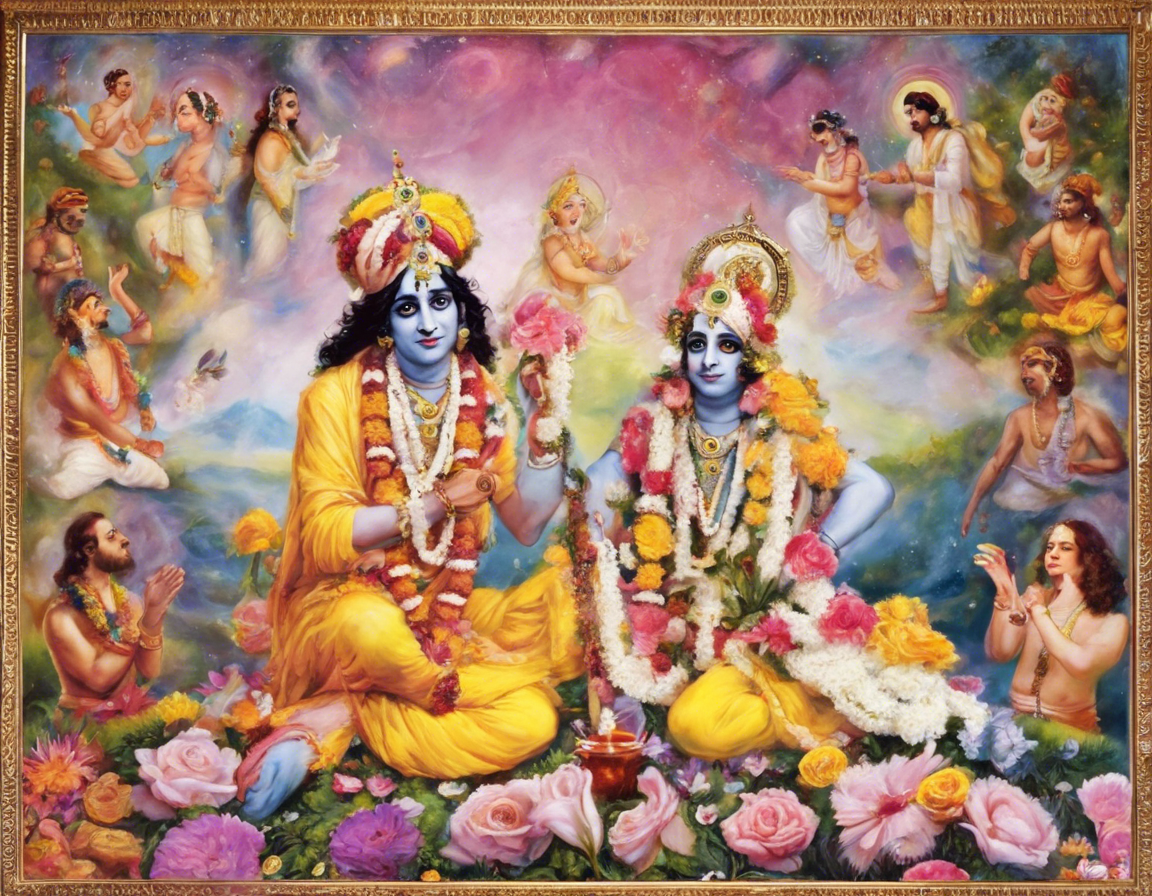The Hare Krishna movement, also known as the International Society for Krishna Consciousness (ISKCON), is a spiritual organization founded in 1966 by A.C. Bhaktivedanta Swami Prabhupada. With roots in ancient Indian scriptures and teachings, the Hare Krishna faith is based on the principles of loving devotion to Lord Krishna, who is considered the Supreme Personality of Godhead.
Understanding the Philosophy of Hare Krishna Faith
At the core of the Hare Krishna philosophy is the belief that the ultimate goal of life is to develop a loving relationship with God. Practitioners of the Hare Krishna faith seek to achieve this through the chanting of the Hare Krishna mantra, which is believed to have the power to purify the mind and awaken the soul’s innate spiritual consciousness.
The Importance of Chanting the Hare Krishna Mantra
Central to the practice of the Hare Krishna faith is the chanting of the Hare Krishna mantra: Hare Krishna, Hare Krishna, Krishna Krishna, Hare Hare, Hare Rama, Hare Rama, Rama Rama, Hare Hare. This mantra is said to be a direct connection to the divine and is considered to be a potent means of spiritual realization and liberation.
Principles of Hare Krishna Faith
The Hare Krishna faith is guided by four key principles:
- No meat-eating: Practitioners adhere to a vegetarian diet as a way to cultivate compassion for all living beings.
- No illicit sex: Adherents believe in the sanctity of marriage and the importance of practicing self-control.
- No gambling: Gambling is seen as a distraction from spiritual growth and self-improvement.
- No intoxication: Avoiding substances that cloud the mind is essential for spiritual clarity and awareness.
The Practice of Bhakti Yoga
Central to the Hare Krishna tradition is the practice of Bhakti Yoga, the path of loving devotion to the divine. Bhakti Yoga emphasizes the importance of cultivating a deep and personal relationship with God through acts of devotion, service, and meditation.
The Bhagavad Gita and Hare Krishna Faith
The Hare Krishna movement draws heavily from the teachings of the Bhagavad Gita, a sacred Hindu scripture that presents a dialogue between Lord Krishna and the warrior prince Arjuna. The Bhagavad Gita expounds on the nature of reality, the purpose of life, and the path to spiritual enlightenment, providing valuable insights for Hare Krishna practitioners.
Frequently Asked Questions (FAQs)
-
What is the origin of the Hare Krishna mantra?
The Hare Krishna mantra is said to have originated in the ancient scriptures of India, specifically the Kali-Santarana Upanishad, as a powerful invocation to connect with the divine. -
Is the Hare Krishna movement only for Hindus?
While the Hare Krishna movement has its roots in Hinduism, it is open to people of all backgrounds and faith traditions who are interested in spiritual growth and self-realization. -
How important is vegetarianism in the Hare Krishna faith?
Vegetarianism is strongly emphasized in the Hare Krishna faith as a way to promote compassion for all living beings and to cultivate spiritual purity. -
Can anyone chant the Hare Krishna mantra?
Yes, the Hare Krishna mantra is considered non-sectarian and can be chanted by anyone regardless of their religious or spiritual beliefs. -
What role does service play in the Hare Krishna tradition?
Service, or seva, is an integral part of the Hare Krishna tradition as a means of expressing love and devotion to God and serving the community.
In conclusion, the Hare Krishna faith offers a path to spiritual fulfillment through the practice of loving devotion, meditation, and service. By understanding and embracing the principles of the Hare Krishna tradition, individuals can cultivate inner peace, compassion, and a deep connection to the divine.



